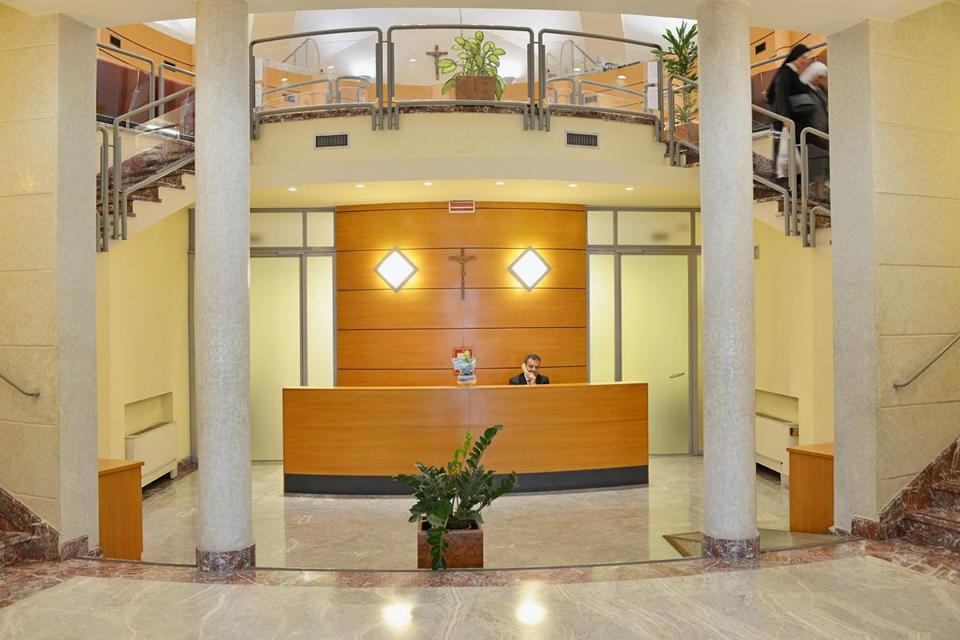|
Another shake-up looms at troubled Vatican bank
By John L. Allen Jr.
As a new Council for the Economy created by Pope Francis to oversee reform in Vatican finances prepares to meet this week, the troubled Vatican bank appears set for its second shake-up in two years with the imminent departure of its president, German businessman Ernst von Freyberg. Officials confirmed the move to the Globe on Monday, but disagreed as to whether it’s a routine part of restructuring efforts or if alleged irregularities are involved. While struggling to avoid impressions of a crisis, Vatican officials also find themselves playing down accusations in the Italian press that a shadowy “Maltese lobby” led by economist Joseph F.X. Zahra of Malta, vice coordinator of the new council, is attempting to take control of Vatican assets, presumably for motives of financial gain. Speaking on background, Vatican officials insist the reports are either false or exaggerated. Officials not authorized to speak on the record said von Freyberg’s exit could be finalized as early as this week, following a meeting the Council for the Economy will hold Saturday. Eight cardinals, including Daniel DiNardo of Galveston-Houston, make up that body, along with seven lay members. The leading candidate to take over at the bank, technically known as the Institute for the Works of Religion, is said to be French financier Jean-Baptise de Franssu, who served on a panel to study the Vatican’s financial systems created by the pontiff in 2013 and who currently sits on the Council for the Economy. If so, observers may read it as a gain for Cardinal George Pell, an Australian tapped by Francis in February as his finance czar, since Zahra and de Franssu are seen as Pell allies. Von Freyberg was among the final appointments by Pope Benedict XVI shortly before the pontiff’s resignation in February 2013. He was brought in to replace Ettore Gotti Tedeschi, an Italian economist fired by the bank’s supervisory board in May 2012. The German businessman’s signature initiative was hiring the US-based regulatory compliance firm Promontory to review all 18,900 account holders, reportedly leading to the closing of 1,400 accounts. Despite those efforts, there are charges that not all is well. Last week the Italian newsmagazine L’Espresso published a story based on internal Vatican documents, including a critical letter from an Italian cleric named Monsignor Battista Ricca, named by Francis as his personal representative to the bank, complaining about alleged miscues and charging that incomplete information had been provided to him, and by extension, the pope. Those episodes include an estimated loss of $20 million in a loan to a video company run by a friend of a senior Vatican cardinal, a real estate transaction in Hungary that was allegedly overvalued, and a deficit in the Vatican’s pension fund estimated in excess of $1 billion. In a June 18 interview with the Globe, DiNardo confirmed that the pension fund is a source of concern, saying “deeper actuarial studies” are needed to find out where things stand. Defenders of von Freyberg say that even if those reports are accurate, they largely predate his tenure. They insist the transition isn’t a vote of no confidence, saying von Freyberg has been shuttling between Rome and Germany and the job requires full-time leadership. Moreover, admirers say von Freyberg deserves credit for significant achievements, citing not only the review by Promontory but also release of the first independently certified financial statement in the bank’s 126-year history. The bank is currently working on this year’s financial statement, which could either be released sometime in July, if the necessary approvals are obtained, or possibly in September. Depending on how things shake out, the question of who runs the bank may become less important, since one hypothesis under consideration is that its “asset management” function, meaning how the bank invests an estimated $9 billion in holdings, may be consolidated with a similar operation in another Vatican department and assigned to a new office. If that happens, as one observer put it, the bank would become no more than “a neighborhood savings and loan.” On another front, the newspaper Il Giornale published a story Saturday charging that Zahra, de Franssu, and a fellow member of the Council for the Economy, Italian academic Francesco Vermiglio, have shared financial interests through a Maltese firm founded by Zahra and Vermiglio called Misco Advisory Ltd. The implication was that Zahra and his friends may be positioning themselves to profit from the Vatican’s new investment policy. Though Zahra declined a request to comment, people close to the former director of Malta’s central bank insist the story is baseless. Aside from the fact that Zahra and other council members are not being paid, they say, Misco Advisory Ltd. is inactive and was never involved in directing investments to Malta, being a management formation and market research firm. Further, they insist, de Franssu never had a role with the company and didn’t meet Zahra until the two men began serving on the advisory panel created by Francis in 2013. As the latest cycle of charges and rebuttals plays out, the Vatican notched a sign of progress Monday, announcing an agreement for sharing financial data with the US Office of the Comptroller of the Currency. “This is a further step in Holy See’s efforts towards perfecting a system of financial regulation and part of our commitment to transparency and international cooperation,” said Rene Bruelhart, a Swiss lawyer who heads the Vatican’s anti-money laundering agency. “Holy See” is the name of the Vatican as a sovereign entity under international law. If nothing else, the drama suggests that the pope, who was hoping to get some downtime in July ahead of a mid-August trip to South Korea, may find himself needing to make some key management decisions instead.
|
.
Any original material on these pages is copyright © BishopAccountability.org 2004. Reproduce freely with attribution.
